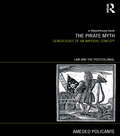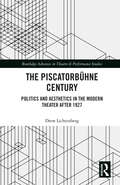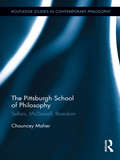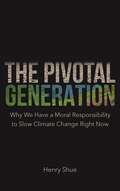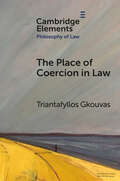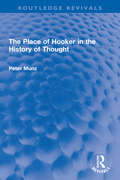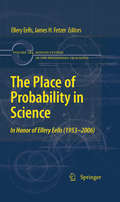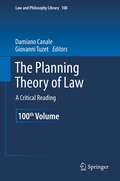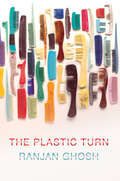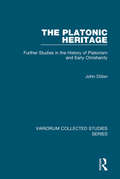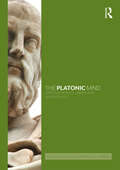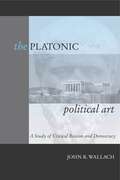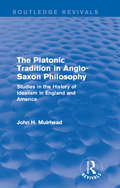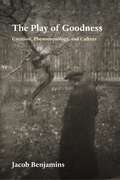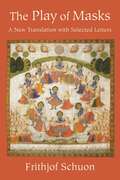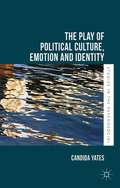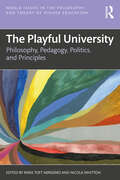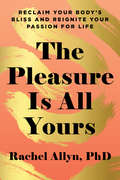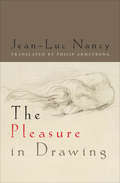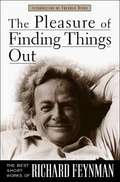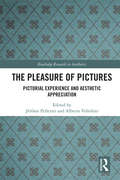- Table View
- List View
The Pirate Myth: Genealogies of an Imperial Concept (Law and the Postcolonial)
by Amedeo PolicanteThe image of the pirate is at once spectral and ubiquitous. It haunts the imagination of international legal scholars, diplomats and statesmen involved in the war on terror. It returns in the headlines of international newspapers as an untimely ‘security threat’. It materializes on the most provincial cinematic screen and the most acclaimed works of fiction. It casts its shadow over the liquid spatiality of the Net, where cyber-activists, file-sharers and a large part of the global youth are condemned as pirates, often embracing that definition with pride rather than resentment. Today, the pirate remains a powerful political icon, embodying at once the persistent nightmare of an anomic wilderness at the fringe of civilization, and the fantasy of a possible anarchic freedom beyond the rigid norms of the state and of the market. And yet, what are the origins of this persistent ‘pirate myth’ in the Western political imagination? Can we trace the historical trajectory that has charged this ambiguous figure with the emotional, political and imaginary tensions that continue to characterize it? What can we learn from the history of piracy and the ways in which it intertwines with the history of imperialism and international trade? Drawing on international law, political theory, and popular literature, The Pirate Myth offers an authoritative genealogy of this immortal political and cultural icon, showing that the history of piracy – the different ways in which pirates have been used, outlawed and suppressed by the major global powers, but also fantasized, imagined and romanticised by popular culture – can shed unexpected light on the different forms of violence that remain at the basis of our contemporary global order.
The Piscatorbühne Century: Politics and Aesthetics in the Modern Theater After 1927 (Routledge Advances in Theatre & Performance Studies)
by Drew LichtenbergThis study of the Piscatorbühne season of 1927–1928 uncovers a vital, previously neglected current of radical experiment in modern theater, a ghost in the machine of contemporary performance practices. A handful of theater seasons changed the course of 20th- and 21st-century theatre. But only the Piscatorbühne of 1927–1928 went bankrupt in less than a year. This exploration tells the story of that collapse, how it predicted the wider collapse of the late Weimar Republic, and how it relates to our own era of political polarization and economic instability. As a wider examination of Piscator’s contributions to dramaturgical and aesthetic form, The Piscatorbühne Century makes a powerful and timely case for the renewed significance of the broader epic theater tradition. Drawing on a rich archive of interwar materials, Drew Lichtenberg reconstructs this germinal nexus of theory and praxis for the modern theatre. This book will be of great interest to students and scholars in theatre, performance, art, and literature.
The Pittsburgh School of Philosophy: Sellars, McDowell, Brandom (Routledge Studies in Contemporary Philosophy)
by Chauncey MaherIn this volume, Maher contextualizes the work of a group of contemporary analytic philosophers—The Pittsburgh School—whose work is characterized by an interest in the history of philosophy and a commitment to normative functionalism, or the insight that to identify something as a manifestation of conceptual capacities is to place it in a space of norms. Wilfrid Sellars claimed that humans are distinctive because they occupy a norm-governed "space of reasons." Along with Sellars, Robert Brandom and John McDowell have tried to work out the implications of that idea for understanding knowledge, thought, norms, language, and intentional action. The aim of this book is to introduce their shared views on those topics, while also charting a few key disputes between them.
The Pivotal Generation: Why We Have a Moral Responsibility to Slow Climate Change Right Now
by Henry ShueAn eminent philosopher explains why we owe it to future generations to take immediate action on global warmingClimate change is the supreme challenge of our time. Yet despite growing international recognition of the unfolding catastrophe, global carbon emissions continue to rise, hitting an all-time high in 2019. Unless humanity rapidly transitions to renewable energy, it may be too late to stop irreversible ecological damage. In The Pivotal Generation, renowned political philosopher Henry Shue makes an impassioned case for taking immediate, radical action to combat global warming.Shue grounds his argument in a rigorous philosophical analysis of climate change’s moral implications. Unlike previous generations, which didn’t fully understand the danger of burning carbon, we have the knowledge to comprehend and control rising carbon dioxide levels. And unlike future generations, we still have time to mitigate the worst effects of global warming. This generation has the power, and thus the responsibility, to save the planet. Shirking that responsibility only leaves the next generation with an even heavier burden—one they may find impossible to bear.Written in direct, accessible language, The Pivotal Generation approaches the latest scientific research with a singular moral clarity. It’s an urgently needed call to action for anyone concerned about the planet’s future.
The Place of Coercion in Law (Elements in Philosophy of Law)
by Triantafyllos GkouvasThe question of whether coercion is a necessary or contingent feature of governance by law is a historically complex aspect of a venerable 'modalist' trend in jurisprudential thinking. The nature of the relation between law and coercion has been elaborated by means of a variety of modally qualified accounts, all converging in a more or less committing response to whether the language, concept or essence of law as a system of governance necessarily entails the coercive character of this system. This Element remodels in non-modal terms the way in which legal philosophers can meaningfully disagree about the coercive character of governance by law. On this alternative model, there can be no meaningful disagreement about whether law is coercive without prior agreement on the contours of a theory of how law is made.
The Place of Hooker in the History of Thought (Routledge Revivals)
by Peter MunzFirst Published in 1952, The Place of Hooker in the History of Thought unravels the historical background to some of Richard Hooker’s leading ideas. The volume throws light on his ideas by a clear appreciation of the philosophical issues he raised and the difficulties he had to face when he embraced the cause of Thomism in Elizabethan England. Peter Munz discusses themes like Hooker’s debt to St. Thomas, Hooker and Marsilius of Padua, Hooker’s historical sense, Hooker and Aristotle and Plato, Hooker and Locke, to determine his place in the history of thought. This book will be of interest to scholars and researchers of Philosophy, Religion, Theology, Political Thought and Political Philosophy.
The Place of Prejudice
by Adam Adatto SandelToday we associate prejudice with ignorance and bigotry and consider it a source of injustice. So how can prejudice have a legitimate place in moral and political judgment? In this ambitious work, Adam Sandel shows that prejudice, properly understood, is not an unfortunate obstacle to clear thinking but an essential aspect of it. The aspiration to reason without preconceptions, he argues, is misguided. Ranging across philosophy from Aristotle to Heidegger and Gadamer, Sandel demonstrates that we inherit our "prejudice against prejudice" from the Enlightenment. By detaching reason from habit and common opinion, thinkers such as Bacon, Descartes, and Kant invented prejudice--as we understand it today--as an obstacle to freedom and a failure to think for oneself. The Place of Prejudice presents a powerful challenge to this picture. The attempt to purge understanding of culture and history leads not to truth, Sandel warns, but to shallowness and confusion. A purely detached notion of reason deprives judgment of all perspective, disparages political rhetoric as mere pandering, and denies us the background knowledge we need to interpret literature, law, and the past. In a clear, eloquent voice, Sandel presents instead a compelling case for reasoning within the world.
The Place of Probability in Science
by Ellery Eells J. H. FetzerThe purpose of philosophy, broadly conceived, can be described as that of attempting to resolve heretofore unsolved conceptual and theoretical problems, especially those that lie at the foundations of knowledge and values. Given the central role of science in acquiring reliable knowledge, the study of science has become of special importance within philosophy. And within philosophy of science, in turn, no other concept possesses the centrality and importance as does that of probability. To clarify and illuminate the place of probability in science Ellery Eells and James H. Fetzer have brought together some of the most distinguished philosophers from our time. After a comprehensive introduction to alternative conceptions of objective probability and the difficulties that they confront, three studies describe the special problems that arise within this context and the comparative merits of different accounts. The second section addresses the nature of lawfulness and of relations between micro- and macro-probabilities, especially with reference to the concept of fitness in evolution. The third section confronts some of the difficulties confronted by causal conceptions of probability, especially within the quantum domain. The fourth extends the discussion to principles of inference and decision. The last chapter relates propensities and frequencies to the framework of inference to the best explanation.
The Planning Theory of Law
by Damiano Canale Giovanni TuzetThis collection of essays is the outcome of a workshop with Scott Shapiro on The Planning Theory of Law that took place in December 2009 at Bocconi University. It brings together a group of scholars who wrote their contributions to the workshop on a preliminary draft of Shapiro's Legality. Then, after the workshop, they wrote their final essays on the published version of the book. The contributions clearly highlight the difference of the continental and civil law perspective from the common law background of Shapiro but at the same time the volume tries to bridge the gap between the two. The essays provide a critical reading of the planning theory of law, highlighting its merits on the one hand and objecting to some parts of it on the other hand. Each contribution discusses in detail a chapter of Shapiro's book and together they cover the whole of Shapiro's theory. So the book presents a balanced and insightful discussion of the arguments of Legality.
The Plastic Turn
by Ranjan GhoshThe Plastic Turn offers a novel way of looking at plastic as the defining material of our age and at the plasticity of plastic as an innovative means of understanding the arts and literature. Ranjan Ghosh terms this approach the material-aesthetic and, through this concept, traces the emergence and development of plastic polymers along the same historical trajectory as literary modernism. Plastic's growth as a product in the culture industry, its formation through multiple application and chemical syntheses, and its circulation via oceanic movements, Ghosh argues, correspond with, and offers novel insights into, developments in modernist literature and critical theory.Through innovative readings of canonical modernist texts, analyses of art works, and accounts of plastic's devastating environmental impact, The Plastic Turn proposes plastic's unique properties and destructive ubiquity as a "theory machine" to explain literature and life in the Anthropocene. Introducing several new concepts (like plastic literature, plastic literary, etc.) into critical-humanist discourse, Ghosh enmeshes literature and theory, materiality and philosophy, history and ecology, to explore why plastic as a substance and as an idea intrigues, disturbs, and haunts us.
The Platonian Leviathan
by Leon Harold CraigThomas Hobbes's influential political treatise, Leviathan, was first published in 1651. Many scholars have since credited him with a mechanistic outlook towards human nature that established the basis of modern Western political philosophy from the perspective of social contract theory. In The Platonian Leviathan, Leon Harold Craig weaves together philosophy, political science, and literature to offer a radical re-interpretation of Hobbes's most famous work.Though Craig begins and concludes his analysis with discussions of Herman Melville's Moby-Dick and includes an essay on Joseph Conrad's Heart of Darkness, the bulk of his two-part commentary centres on Leviathan. Part One shows the overt principles of Hobbes's political prescription to be untenable, and strongly suggests that Hobbes himself did not subscribe to these rules, using them only as tools to further his philosophical goals. In Part Two, Craig displays the underlying Platonism of Hobbes's thinking. Sure to be controversial, The Platonian Leviathan may nonetheless re-orient the future direction of Hobbes scholarship.
The Platonic Alcibiades I
by Renaud, François and Tarrant, Harold François Renaud Harold TarrantAlthough it was influential for several hundred years after it first appeared, doubts about the authenticity of the Platonic Alcibiades I have unnecessarily impeded its interpretation ever since. It positions itself firmly within the Platonic and Socratic traditions, and should therefore be approached in the same way as most other Platonic dialogues. It paints a vivid portrait of a Socrates in his late thirties tackling the unrealistic ambitions of the youthful Alcibiades, urging him to come to know himself and to care for himself. François Renaud and Harold Tarrant re-examine the drama and philosophy of Alcibiades I with an eye on those interpreters who cherished it most. Modern scholars regularly play down one or more of the religious, erotic, philosophic or dramatic aspects of the dialogue, so ancient Platonist interpreters are given special consideration. This rich study will interest a wide range of readers in ancient philosophy.
The Platonic Art of Philosophy
by Christopher Gill George Boys-Stones Dimitri El Murr George Boys-Stones Dimitri El MurrThis is a collection of essays written by leading experts in honour of Christopher Rowe, and inspired by his groundbreaking work in the exegesis of Plato. The authors represent scholarly traditions which are sometimes very different in their approaches and interests, and so rarely brought into dialogue with each other. This volume, by contrast, aims to explore synergies between them. Key topics include: the literary unity of Plato's works; the presence and role of his contemporaries in his dialogues; the function of myth (especially the Atlantis myth); Plato's Socratic heritage, especially as played out in his discussions of psychology; his views of truth and being. Prominent among the dialogues discussed are Euthydemus, Phaedo, Phaedrus, Republic, Theaetetus, Timaeus, Sophist and Laws.
The Platonic Heritage: Further Studies in the History of Platonism and Early Christianity (Variorum Collected Studies #1008)
by John DillonThis third collection of articles by John Dillon covers the period 1996-2006, the decade since the appearance of The Great Tradition. Once again, the subjects covered range from Plato himself and the Old Academy, through Philo and Middle Platonism, to the Neoplatonists and beyond. Particular concerns evidenced in the papers are the continuities in the Platonic tradition, and the setting of philosophers in their social and cultural contexts, while at the same time teasing out the philosophical implications of particular texts. Such topics are addressed as atomism in the Old Academy, Philo's concept of immateriality, Plutarch's and Julian's views on theology, and peculiar features of Iamblichus' exegeses of Plato and Aristotle, but also the broader questions of the social position of the philosopher in second century A.D. society, and the nature of ancient biography.
The Platonic Mind (Routledge Philosophical Minds)
by Vasilis Politis Peter D. LarsenPlato is one of the most widely read and studied philosophers of all time. A pivotal figure in the history of philosophy, his work is foundational to the Western philosophical tradition.The Platonic Mind provides an extensive survey of his work, not only placing it in its historical context but also exploring its contemporary significance. Comprising over 30 specially commissioned chapters by an international team of contributors, the volume is divided into three clear parts: Reading Plato’s Dialogues Themes From Plato Plato’s Influences and Significance Within these sections key topics are addressed including the nature of reality and the physical world; human cognition, including knowledge, sense perception, and affective states; society, politics, and law; his method of inquiry and literary style; his influence on subsequent thinkers and traditions; and studies on a wide range of individual Platonic dialogues.Plato’s work is central to the study of ancient philosophy, Greek philosophy, history of philosophy, metaphysics, philosophy of mind, political philosophy, epistemology, philosophy of science, ethics, philosophy of language, legal philosophy, and philosophy of religion. As such The Platonic Mind is essential reading for all students and researchers in philosophy. It will also be of interest to those studying Plato in related disciplines such as politics, law, ancient history, literature, and religious studies.
The Platonic Political Art: A Study of Critical Reason and Democracy (G - Reference, Information and Interdisciplinary Subjects)
by John R. WallachIn this first comprehensive treatment of Plato’s political thought in a long time, John Wallach offers a "critical historicist" interpretation of Plato. Wallach shows how Plato’s theory, while a radical critique of the conventional ethical and political practice of his own era, can be seen as having the potential for contributing to democratic discourse about ethics and politics today.The author argues that Plato articulates and "solves" his Socratic Problem in his various dialogues in different but potentially complementary ways. The book effectively extracts Plato from the straightjacket of Platonism and from the interpretive perspectives of the past fifty years—principally those of Karl Popper, Leo Strauss, Hannah Arendt, M. I. Finley, Jacques Derrida, and Gregory Vlastos.The author’s distinctive approach for understanding Plato—and, he argues, for the history of political theory in general—can inform contemporary theorizing about democracy, opening pathways for criticizing democracy on behalf of virtue, justice, and democracy itself.
The Platonic Tradition in Anglo-Saxon Philosophy: Studies in the History of Idealism in England and America (Routledge Revivals)
by John H. MuirheadOriginally published in 1931, Muirhead’s study aims to challenge the view that Locke’s empiricism is the main philosophical thought to come out of England, suggesting that the Platonic tradition is much more prominent. These views are explored in detail in this text as well as touching on its development in the nineteenth century from Coleridge to Bradley and discussions on Transcendentalism in the United States. This title will be of interest to students of Philosophy.
The Play of Goodness: Creation, Phenomenology, and Culture (Perspectives in Continental Philosophy)
by Jacob BenjaminsOne of the enduring claims in the Christian tradition is that creation is good. Given the diversity of experience and the abundance of suffering in the world, however, such an affirmation is not always straightforward. The Play of Goodness provides a phenomenology of creation’s goodness that clarifies the ongoing relevance of the doctrine today. It argues that what is “good” about creation is not synonymous with a confession of faith and does not require an overly optimistic disposition, but instead appears within diverse and often surprising circumstances.Alongside original contributions to French phenomenology and creation theology, The Play of Goodness counterbalances a tendency in continental philosophy to focus on negative phenomena. By developing the philosophical concept of a prelinguistic experience of goodness, the book identifies a quality of goodness that is integral to the place in which we find ourselves. It also articulates shared points of contact among people in an increasingly polarized world, while demonstrating that distinctly theological concepts do not need to be presented in opposition to secular, agnostic, or atheist perspectives in order to be relevant. Benjamins develops an account of creation’s goodness that has the potential to animate an abiding affection for one’s place, accentuate our reasons to care for it, and confirm that what happens in our lives is of genuine significance.
The Play of Masks
by Frithjof SchuonThis late work of Frithjof Schuon represents a general survey of his metaphysical perspective, which is that of the Sophia perennis, or &“perennial wisdom&” found at the heart of the world&’s religions. This new edition of The Play of Masks features a fully revised translation from the French original as well as over 50 pages of new material, including previously unpublished selections from the author&’s letters and other private writings. Also included is an editor&’s preface, extensive editor&’s notes, a glossary of foreign terms and phrases, an index, and biographical notes. Composed of short independent treatises, this book presents readers with fundamental keys for understanding the nature of God, the world, and the human situation. Throughout his writings, Schuon emphasizes the centrality of three elements: Truth, Way, and Virtue. The Truth is what we must know; the Way is what we must do; Virtue is what we must love, become, and be.
The Play of Political Culture, Emotion and Identity (Studies in the Psychosocial)
by Candida YatesOffering a uniquely 'psycho-cultural' take on the emotional dynamics of UK political culture this book uses theories and research in psychoanalysis, cultural and media studies and political sociology. It explores the cultural and emotional processes that shape our relationship to politics in a media age, referencing Joanna Lumley to Nigel Farage.
The Playful University: Philosophy, Pedagogy, Politics and Principles (World Issues in the Philosophy and Theory of Higher Education)
by Nicola Whitton Rikke Toft NørgårdThis book provides philosophical, political and practical insights that open ways for the university in going beyond its tightly controlled state and into more playful and imaginative futures.In the context of a marketised and regulated environment that stifles creativity and curiosity in higher education, this collection provides an antidote that lies in the potential of play. It identifies tactics and tools for playful practices to conjure real utopias and pathways for the present and possible futures. Pulling together global perspectives from a wide array of different disciplines including higher education, sociology, philosophy, media studies, design, literature, play studies, game studies and political science, it concludes with a collaborative chapter that offers philosophically and theoretically grounded principles for the playful university. The book shows that it is possible to reimagine a higher education in which students and staff approach their studies with a sense of purpose, care, and openness to explore, imagine and build a better future.Looking beyond pedagogy to imagination, and wonder as important perspectives within the university, this is an essential read for those interested in play and subversion in higher education.
The Pleasure Is All Yours: Reclaim Your Body’s Bliss and Reignite Your Passion for Life
by Rachel AllynReconnect to your inner sense of pleasure and joy through embodiment practices, which put you in touch with the natural wisdom of your body and enhance your ability to connect with others. In this time of increased fatigue, loneliness, and anxiety, disconnection from our bodies and from each other is at the core of our personal pain and our collective suffering. Women in particular are rewarded for, and expected to participate in self-denial. By weaving together historical and cultural commentary, humorous and poignant anecdotes, and experiential tools backed by science, The Pleasure Is All Yours is a step-by-step guide to help you release barriers to receiving life&’s pleasures and deeper connections with others. In this timely guide, holistic psychologist, relationship and sex therapist, and yoga teacher Dr. Rachel Allyn introduces bodyfulness, an embodiment method she developed to help you to awaken into your body's own capacity for healing and deeper connection. Allyn explains how bodyfulness can connect you to four essential and overlooked types of pleasure—sensual, playful, lively, and erotic— which overlap in many ways, and helps you identify what can inspire your own pleasure in each category. Through bodyful activities such as breathing exercises, mindfulness, yoga, auditory release, and dynamic movements, this book helps you reunite with your inherent wisdom and soulful delight.
The Pleasure in Drawing
by Jean-Luc NancyThe renowned philosopher contemplates the medium of drawing in &“a book full of dazzling insights, imaginative curves and provocative renewals&” (Sarah Clift, University of King&’s College). In 2007, philosopher Jean-Luc Nancy curated an exhibition at the Museum of Fine Arts in Lyon. This book, originally written for that exhibition, explores the interplay between drawing and form—viewing the act of drawing as a formative force. Recalling that the terms &‘drawing&’ and &‘design&’ were once used interchangeably, Nancy notes that drawing designates a design that remains without project, plan, or intention. His argument offers a way of rethinking a number of historical terms (sketch, draft, outline, plan, mark, notation), which includes rethinking drawing in its graphic, filmic, choreographic, poetic, melodic, and rhythmic senses. For Nancy, drawing resists any kind of closure, and therefore never resolves a tension specific to itself. Drawing allows the gesture of a desire that remains in excess of all knowledge to come to appearance. Situating drawing in these terms, Nancy engages a number of texts in which Freud addresses the force of desire in the rapport between aesthetic and sexual pleasure, texts that also turn around questions concerning form in its formation. Between sections of his text, Nancy includes a series of &“sketchbooks&” on drawing, composed of quotations on art from different writers, artists, or philosophers.
The Pleasure of Finding Things Out: The Best Short Works of Richard P. Feynman
by Richard P. Feynman Jeffrey RobbinsA rich collection of interviews, articles and interesting writeups on quantum physics concepts by Richard Feynman.
The Pleasure of Pictures: Pictorial Experience and Aesthetic Appreciation (Routledge Research in Aesthetics)
by Alberto Voltolini Jérôme PelletierThe general aim of this volume is to investigate the nature of the relation between pictorial experience and aesthetic appreciation. In particular, it is concerned with the character and intimacy of this relationship: is there a mere causal connection between pictorial experience and aesthetic appreciation, or are the two relata constitutively associated with one another? The essays in the book’s first section investigate important conceptual issues related to the pictorial experience of paintings. In Section II, the essays discuss the notion of styles, techniques, agency, and facture, and also take into account the experience of photographic and cinematic pictures. The Pleasure of Pictures goes substantially beyond current debates in the philosophy of depiction to launch a new area of reflection in philosophical aesthetics.
